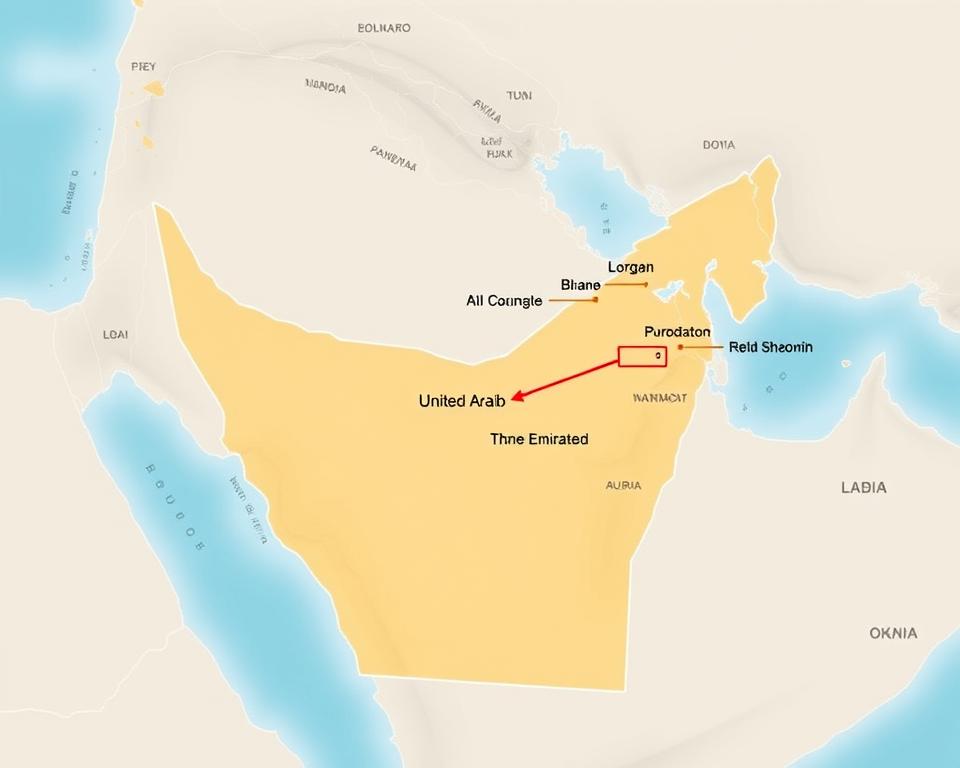For international businesses seeking tax advantages and asset protection, the United Arab Emirates has emerged as a preferred destination for offshore company formation. The UAE’s well-defined offshore jurisdiction policies, governed by specific licensing authorities, provide a secure and reliable environment for foreign investors.
The process of establishing an offshore company in the UAE involves several steps, from initial registration to ongoing management requirements. Upon registration, investors receive a Certificate of Incorporation, Memorandum of Association, and Articles of Association, solidifying their business presence in the region.
With its zero taxation policy, confidentiality, and access to international banking, the UAE offers a unique combination of benefits that make it an attractive choice for businesses worldwide.
Table of Contents:
- Understanding Offshore Companies in the UAE
- Benefits of Offshore Company Formation in UAE
- UAE Offshore Company Formation Process
- Documentation Requirements for UAE Offshore Companies
- Offshore Company Formation UAE Jurisdictions Compared
- Cost of Setting Up an Offshore Company in UAE
- Banking Options for UAE Offshore Companies
- Limitations and Restrictions of UAE Offshore Companies
- Conclusion: Is UAE Offshore Company Formation Right for Your Business?
Understanding Offshore Companies in the UAE
The United Arab Emirates has emerged as a premier destination for offshore company formation, offering a unique blend of business-friendly regulations and strategic global positioning. Offshore companies in the UAE are governed by three major offshore jurisdictions: Ajman Offshore, RAKICC Offshore, and JAFZA Offshore.

Offshore vs. Onshore Companies: Key Differences
Understanding the distinction between offshore and onshore companies is crucial for businesses looking to establish a presence in the UAE. The primary difference lies in their operational scope and regulatory requirements. Onshore companies are required to operate within the UAE and are subject to federal and local laws, whereas offshore companies are typically used for international trade and investment, offering greater flexibility and tax advantages.
Onshore companies require a physical presence and are often subject to stricter regulations, including higher capital requirements and local sponsorship. In contrast, offshore companies can be managed from anywhere in the world, providing greater flexibility for global business operations.
Popular UAE Offshore Jurisdictions
The UAE is home to several offshore jurisdictions, each with its unique advantages. The RAK International Corporate Centre (RAKICC), Ajman Offshore, and Jebel Ali Free Zone Authority (JAFZA) Offshore are the three primary jurisdictions. RAKICC is known for its robust regulatory framework and international recognition, while Ajman Offshore offers a more straightforward incorporation process. JAFZA Offshore, on the other hand, provides a strategic location within the Jebel Ali Free Zone, facilitating trade and commerce.
These jurisdictions offer businesses the flexibility to trade in multiple currencies, open a bank account globally, and facilitate global trade, making the UAE an attractive hub for international business.
Benefits of Offshore Company Formation in UAE

The United Arab Emirates has emerged as a premier destination for offshore company formation, offering numerous benefits to investors worldwide. Forming an offshore company in the UAE can provide a strategic advantage in the global market.
Tax Advantages and Financial Benefits
One of the primary benefits of setting up an offshore company in the UAE is the tax advantages it offers. Offshore companies are not subject to corporate or personal income tax, making it an attractive option for businesses looking to minimize their tax liability. Additionally, the UAE’s strategic location and well-developed infrastructure facilitate efficient financial transactions and bank account management.
Asset Protection and Privacy
UAE offshore companies provide a high level of asset protection and privacy. The country’s laws ensure that the details of shareholders and directors are not publicly disclosed, offering a secure environment for investors. This level of privacy is particularly beneficial for businesses involved in international trade and those looking to protect their intellectual property.
Global Business Operations
Offshore companies in the UAE can facilitate global business operations by providing a platform for unrestricted international trade. They can be used to conduct consulting and management services across multiple jurisdictions, and their structure allows for the efficient management of company assets worldwide. Moreover, the UAE’s excellent infrastructure supports global business operations through world-class shipping, aviation, and telecommunications networks.
UAE Offshore Company Formation Process

Establishing an offshore company in the UAE involves a straightforward process with significant advantages. The UAE’s offshore jurisdictions offer a conducive environment for businesses to thrive globally.
Step-by-Step Registration Guide
The registration process for an offshore company in the UAE is streamlined and efficient. It begins with selecting a suitable offshore jurisdiction, such as RAKICC, Ajman, or JAFZA, based on the business needs. The next step involves preparing the necessary documents and submitting the application through a registered agent.
The incorporation process is facilitated by the registered agent, who ensures that all regulatory requirements are met. This includes obtaining the necessary clearances and liaising with government authorities.
Role of Registered Agents
A registered agent plays a crucial role in the company formation process. They are responsible for providing a registered office address, handling official correspondence, and maintaining statutory records. The agent acts as the primary point of contact between the offshore company and the regulatory authorities in the UAE.
The team at Aurion, as a professional registered agent, guides clients through all phases of the offshore company formation process, ensuring compliance with regulatory requirements and successful registration. They also assist with the annual renewal process and offer value-added services such as bank account introductions and corporate secretarial services.
Documentation Requirements for UAE Offshore Companies
To successfully set up a UAE offshore company, it’s crucial to understand the documentation requirements for both individual and corporate shareholders. The process involves gathering specific documents to ensure compliance with the jurisdiction’s regulations.

Individual Shareholder Requirements
For individual shareholders, the required documents typically include a valid passport copy, a utility bill or bank statement for address verification, and sometimes a reference letter. These documents are essential for Know Your Customer (KYC) compliance and to verify the identity and address of the shareholder.
Corporate Shareholder Requirements
Corporate shareholders have more complex documentation requirements. These include a certified copy of the company’s certificate of incorporation, articles of association, and a certificate of good standing. Additionally, documentation to establish the ultimate beneficial ownership, such as registers of directors and shareholders, is required. A board resolution authorizing the establishment of the offshore company and appointing representatives is also necessary. These documents may need to be authenticated through legalization or apostille, depending on the country of origin.
The documentation process for corporate shareholders also involves providing corporate bank references and financial statements to establish the entity’s standing. Preparing these documents requires careful attention to detail, especially for multi-layered corporate structures that involve multiple jurisdictions.
Offshore Company Formation UAE Jurisdictions Compared
The UAE offers several jurisdictions for offshore company formation, each with its unique advantages and characteristics. This section will provide an overview of three popular options: RAK International Companies (RAKICC), Ajman Offshore, and JAFZA Offshore.
RAK International Companies (RAKICC)
RAKICC is one of the most established offshore jurisdictions in the UAE. It offers a flexible and cost-effective solution for companies looking to establish an offshore presence. With no minimum capital requirements and a straightforward registration process, RAKICC is an attractive option for businesses. RAKICC companies can be used for a variety of purposes, including holding companies and investment vehicles.
Ajman Offshore
Ajman Offshore is another popular jurisdiction for offshore company formation in the UAE. It offers a simple and efficient registration process, with minimal documentation requirements. Ajman Offshore companies are often used for international trade and investment activities. Ajman Offshore is known for its flexibility and ease of use.
JAFZA Offshore
JAFZA Offshore is a prestigious offshore jurisdiction in the UAE, operating under the Jebel Ali Free Zone Authority. Established in 2003, JAFZA Offshore offers a range of benefits, including the ability to own freehold property in Dubai. This makes it an attractive option for real estate investment and holding companies. JAFZA Offshore companies are required to have at least two directors and one shareholder. They must also maintain accounting records for 10 years and appoint an approved auditor.  “JAFZA Offshore companies offer a unique combination of flexibility and prestige, making them an attractive option for businesses looking to establish a presence in the UAE,” according to industry experts.
“JAFZA Offshore companies offer a unique combination of flexibility and prestige, making them an attractive option for businesses looking to establish a presence in the UAE,” according to industry experts.
The key features of a JAFZA Offshore company include no minimum share capital requirements and exemption from corporate tax for 15 years. This makes it an attractive option for companies looking to minimize their tax liability. Overall, JAFZA Offshore is a popular choice among businesses due to its prestige and flexibility.
Cost of Setting Up an Offshore Company in UAE

When considering offshore company formation in the UAE, it’s essential to understand the costs involved. The UAE offers several offshore jurisdictions, each with its own cost structure for company formation.
Formation Fees and Packages
The initial cost of setting up an offshore company in the UAE includes formation fees and package charges. These costs vary across different jurisdictions such as RAKICC and Ajman Offshore. Typically, the formation fees cover the registration process, registered agent services, and the preparation of necessary documents.
For instance, the cost of changing the Offshore Agent in RAKICC is AED 1,250, while in Ajman Offshore, it is AED 500. Understanding these costs is crucial for budgeting and selecting the most suitable jurisdiction for your business needs.
Annual Maintenance Costs
Maintaining an offshore company in the UAE involves ongoing annual costs. These include government renewal fees, registered agent fees, and compliance-related costs. The annual government renewal fees vary based on the company structure and authorized capital.
Additionally, businesses must budget for registered agent fees, which are mandatory for all UAE offshore companies. Compliance-related costs, such as annual return filing fees and charges for maintaining statutory records, also need to be considered.
To manage these costs effectively, it’s advisable to work with a reliable registered agent who can guide you through the process and help minimize unnecessary expenses. Moreover, understanding the costs associated with changes to your company structure, such as adding shareholders or amending the memorandum and articles of association, can help in long-term financial planning.
Banking Options for UAE Offshore Companies

Establishing a bank account is a critical step for offshore companies in the UAE. The process involves several key considerations, including the type of bank account, required documentation, and compliance with banking regulations.
Opening a Corporate Bank Account
Opening a corporate bank account for an offshore company in the UAE is a vital requirement. The bank account opening process depends on the company’s business profile, annual turnover, and fund flows. UAE banks conduct thorough compliance checks on the offshore company and review supporting documents before opening an account.
The process can be lengthy, taking almost a month in certain cases, due to strict compliance checks and approvals.
KYC Requirements and Compliance
UAE banks impose stringent Know Your Customer (KYC) norms on offshore companies seeking to open bank accounts. Enhanced due diligence procedures are typically applied to offshore companies, requiring detailed documentation for both the company and its beneficial owners.
This includes identification, proof of address, and source of wealth evidence. Banks also look for substance requirements, such as evidence of genuine business activity, to ensure compliance with international regulations.
Limitations and Restrictions of UAE Offshore Companies
While offshore company formation in the UAE offers numerous benefits, there are certain limitations and restrictions that businesses must be aware of. Understanding these constraints is essential for companies to navigate the regulatory environment effectively and make informed decisions about their business structure.
Business Activity Restrictions
Offshore companies in the UAE are subject to specific restrictions on their business activities. These companies are generally not allowed to conduct business directly within the UAE mainland. However, they can engage in international business activities. Offshore companies registered in certain jurisdictions, such as RAKICC and JAFZA, have the advantage of being able to own freehold property in selected locations within the UAE. It’s also worth noting that offshore companies are limited to purchasing residential property.
- Cannot conduct business within UAE mainland
- Allowed to engage in international business
- Some jurisdictions allow ownership of freehold property
Visa and Physical Presence Limitations
Offshore companies face significant limitations regarding visa applications and physical presence in the UAE. They are not eligible to apply for residence visas for shareholders, directors, or employees. Furthermore, offshore companies cannot lease office space in the UAE; they must use the address of their registered agent as their official address.
- No residence visa sponsorship for employees or directors
- Cannot maintain physical offices in the UAE
- Registered agent’s address used for official correspondence
Understanding these limitations is crucial for businesses to plan their operations and compliance requirements effectively.
Conclusion: Is UAE Offshore Company Formation Right for Your Business?
With the UAE’s offshore company formation landscape now laid out before you, the question remains: is this the right choice for yourbusiness? Offshore companies in the UAE offer numerous benefits, including tax advantages, asset protection, and operational flexibility for internationalbusinessoperations.
The idealcompanyprofiles that typically benefit most from UAE offshore structures include international tradingcompanies, consulting firms, holdingcompanies, and investment vehicles. However, it’s crucial to consider yourbusinessactivities, geographical focus, and long-term objectives.
Our expertteamprovides comprehensiveservicesto support your offshorecompany formationneeds, from preparation of registration forms to opening a multi-currency bank account. We can help you determine if a UAE offshorecompanyis right for you and guide you through theformationprocess.
Consult with our experts today to make an informed decision about yourbusinessstructure.

